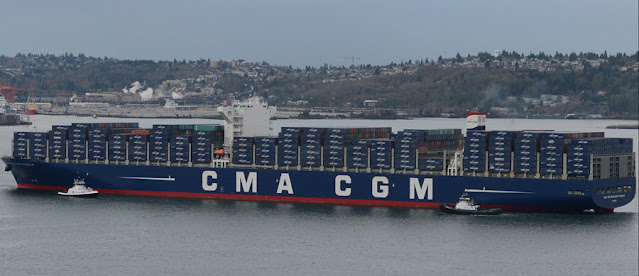Cross-border Paperless Trade is Coming
The International Chamber of Commerce (ICC) and the World Trade Organization (WTO) have created the Digital Standards Initiative. These three documents provide excellent information with regard to that initiative:
- Overview: Digital Trade Standards and Simplified Trade Systems (see slide 5, apparently XBRL International is part of this effort)
- Vision: Key Trade Documents and Data Elements
- Standards: Standards Toolkit for Cross-Border Paperless Trade (see the PDF referenced)
Here is the general idea: Today, annual global trade is valued at approximately US$ 28 trillion. However, this process is highly dependent on paper documents in spite of efforts to digitize the process. There are approximately 40 key trade documents and an estimated 4 billion pages of documentation that supports this global trade, currently only about 1 percent is digital. Efficiency gains in the billions if not trillions of US dollars could be realized if the process was effectively digitalized.
Of the approximately 40 key trade paper documents, there are seven prominent key targets of digitization. Those seven documents are:
- Bill of Lading (example template)
- Commercial Invoice (example template)
- Packing List (example template)
- Certificate of Origin (example template)
- Customs/Goods Declaration (example template)
- Warehouse Receipt (example template)
- Insurance Certificates (example template)
Digitalization of this process could produce benefits along the lines of the Universal Product Code (UPC), the ISO shipping container, cell phone standards, and other such successful standards efforts. Electronic Data Interchange (EDI) also offers lessons to be learned. Remember EDI? If you don't understand EDI, watch this video, What is EDI? An Overview. Paperless trade will likely take all this to a totally new level.
Standards make markets. If you don't understand this, watch the video How a Steel Box Changed the World: A Brief History of Shipping to understand this by seeing how the ISO standard shipping container changed the world. Shipping costs were reduced by an estimated 75%.
I predict that something like Saber will ultimately exist for global trade, facilitating/enabling efficient global trade that is ultimately 99% or might even reach 100% digital. This is an example of other sorts of efficiencies that will be realized in bookkeeping and accounting per what I refer to as The Great Transmutation.
A combination/synthesis of the low cost connectivity offered by the internet, explainable artificial intelligence, machine-readable structured information such as XBRL, digital distributed ledgers, ideas from REA (Resource Event Agent), ideas from Lean Six Sigma, lessons learned from EDI, the Semantic Web, cloud-based software, and such will enable system friction to be significantly reduced.
This helps make the automation of accounting a bit more tangible, easier to understand. Rekeying information from the 4 billion pages of documentation used to make global trade "go" is friction that can, and likely will, be removed from the system. To maximize the efficiencies, micro-, small-, and medium- sized entities will need to participate.
More information:
- WTO Cross Border Paperless Trade Toolkit
- UNECE Trade Facilitation and E-Business
- United Nations Centre for Trade Facilitation and Electronic Business (UN/CEFACT)
- XML Schemas
- eInvoicing
- Turning Accounting on its Ear
- Classical Transactions and Canonical Representations of Business Events
- Flexport
- True Commerce
- International Trade Administration
- Gartner Magic Quadrant for Multienterprise Supply Chain Business Networks
- Cross Border Paperless Trade Prototype Created using XBRL (this is a work in progress...please don't jump to any conclusions)
- Proxtera, (Proxtera YouTube Channel)
- CBP Champions Standards
- The ICC Digital Standards Initiative
- Verifiable Trade Foundation
- Key Trade Documents and Data Elements (KTDDE)
- ISO/IEC 15944-4:2015 (en); Information technology; Business Operational View Part 4: Business transaction scenarios; Accounting and economic ontology
- Global Trade summary




Comments
Post a Comment